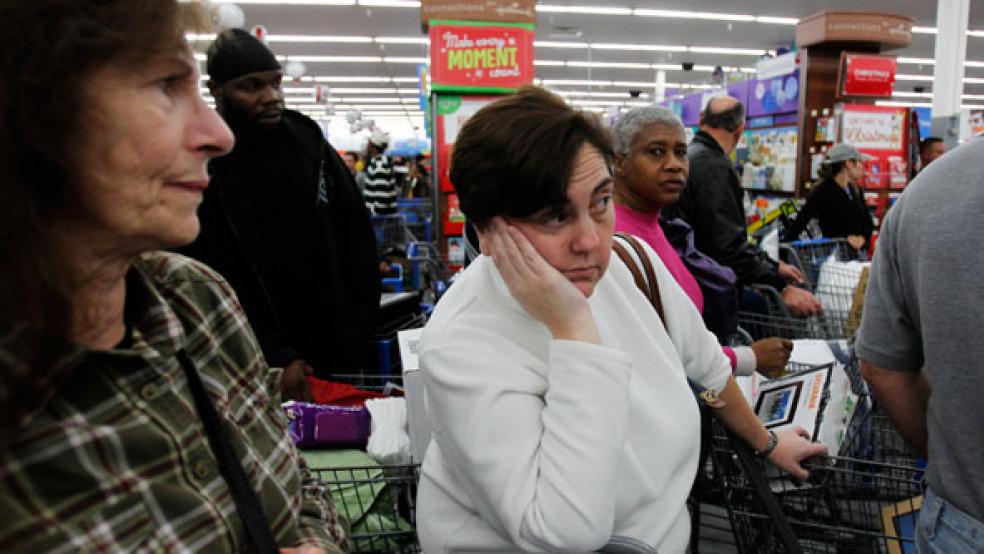Solid economic news seems to be everywhere these days. The stock market is on a tear, initial jobless claims are at a five-year low and gas prices are below $3.50 a gallon. The country averted the full impact of the fiscal cliff and pushed off a debt-ceiling showdown that threatened to destabilize the global economy.

Despite all that, consumer confidence as measured by the Conference Board’s index dropped to its lowest level since November 2011. The big-picture plusses were not enough to outweigh the hit to pocketbooks inflicted by the 2 percentage point payroll tax increase that took effect at the start of the year.
“Consumers are more pessimistic about the economic outlook and, in particular, their financial situation,” the Conference Board’s Lynn Franco said in a statement accompanying the report. “The increase in the payroll tax has undoubtedly dampened consumers’ spirits and it may take a while for confidence to rebound and consumers to recover from their initial paycheck shock.”
The index of consumer attitudes came in at 58.6, down from a revised 66.7 in December. Economists had been expecting a reading of 64.
“In one word: ‘Awful,’” wrote Ian Shepherdson, chief economist at Pantheon Macroeconomic Advisors. “Today’s report presumably reflects fiscal cliff fears and, perhaps, the first hit from the rise in the payroll tax. The danger now is that these numbers could slide even further, even though expectations are already low enough to point to a decline in spending.”
The Conference Board report reflected responses through January 17, and economists will be looking to Friday’s release of the Thomson Reuters/University of Michigan consumer sentiment index to see if the pocketbook pessimism continued throughout the month.
A Gallup tracking poll released Tuesday suggested a more upbeat view of the economy overall, with Gallup’s Economic Confidence Index reaching a five-year weekly high. “Americans’ current views of the U.S. economy clearly indicate a new wave of optimism during the start of 2013,” Gallup noted. “Americans are now more positive about the economy – taking into account current conditions and the outlook for the future – than at any time since the recession and global financial crisis. This likely reflects a combination of factors, including the recent surge in U.S. stock markets, [the] Democrats’ becoming more confident about the economy after the U.S. presidential election, and the lifting of the uncertainty that surrounded the election and the fiscal cliff budget negotiations toward the end of 2012.”
Some economists suggest that consumer confidence should bounce back fairly quickly. “With the debt limit out of the way for a while, and the equity market trending up, we expect the Michigan and Conference Board indexes will start moving up again,” Jim O’Sullivan of High Frequency Economics wrote in a note Tuesday. But the economic impact is likely to be felt for a longer stretch. “Even if confidence does rebound in the near-term,” wrote economist Amna Asaf of Capital Economics, “the hit to household income is likely to restrain first-quarter consumption growth.”





